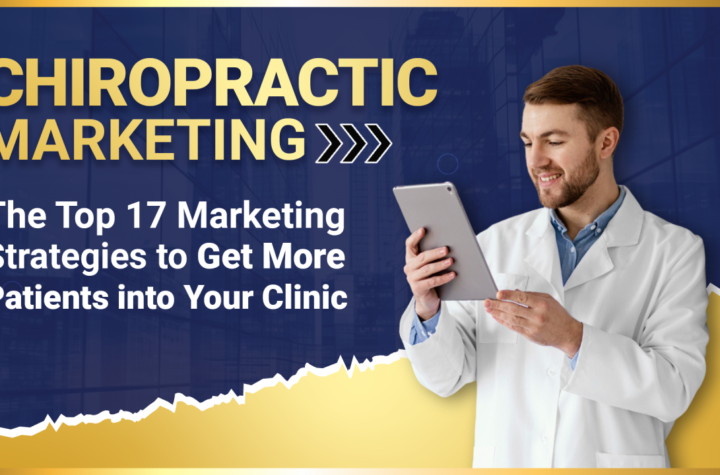
In today’s digital age, a strong online presence is essential for healthcare professionals to reach and engage with their target audience effectively. With the increasing competition in the healthcare industry, search engine optimization (SEO) plays a crucial role in ensuring that healthcare professionals are visible to potential patients searching for their services. This article will explore the importance of SEO for healthcare professionals and provide valuable insights and strategies to optimize their online presence.
Table of Contents
- Introduction to Healthcare Professional SEO
- Understanding the Importance of SEO for Healthcare Professionals
- Keyword Research and Targeting for Healthcare Professionals
- On-Page Optimization Strategies for Healthcare Professional Websites
- Off-Page Optimization for Healthcare Professionals
- Mobile Optimization for Healthcare Professional Websites
- User Experience and Website Performance Optimization
- Leveraging Social Media for Healthcare Professional SEO
- Measuring and Tracking SEO Success for Healthcare Professionals
- FAQs
- 1. How long does it take to see results from healthcare professional SEO?
- 2. Is it necessary to hire an SEO agency for healthcare professional SEO?
- 3. How often should I update my healthcare professional website for SEO purposes?
- 4. Can I do SEO for my healthcare practice on my own, or do I need technical expertise?
- Conclusion
Introduction to Healthcare Professional SEO
As a healthcare professional seo, having a well-optimized website and online presence is vital to attract new patients and retain existing ones. SEO involves implementing various strategies to improve a website’s visibility in search engine results pages (SERPs). By optimizing your online presence, you can rank higher in search engines like Google, Bing, and Yahoo, making it easier for potential patients to find you.
Understanding the Importance of SEO for Healthcare Professionals

In the digital marketing era, patients increasingly turn to search engines to find healthcare providers and medical information. Having a strong SEO strategy ensures that your website appears prominently when people search for relevant keywords related to your practice or specialty. By ranking higher in search results, you increase your chances of attracting new patients and establishing yourself as a trusted authority in your field.
Keyword Research and Targeting for Healthcare Professionals
Keyword research is a critical first step in any SEO strategy. By identifying the keywords and phrases your target audience is using to search for healthcare services, you can optimize your website’s content accordingly. Tools like Google Keyword Planner and SEMrush can help you discover relevant keywords with high search volumes and moderate competition. Incorporate these keywords naturally into your website’s content, including headings, subheadings, and body text, to improve your chances of ranking higher in search results.
On-Page Optimization Strategies for Healthcare Professional Websites
On-page optimization focuses on optimizing individual web pages to improve their visibility and relevance to search engines. Here are some key strategies for healthcare professionals:
4.1. Optimizing Meta Tags and Descriptions
Meta tags and descriptions are HTML elements that provide concise information about your web page’s content. By optimizing these tags with relevant keywords, you can increase the likelihood of search engines displaying them in search results, improving click-through rates.
4.2. Crafting Engaging and SEO-Friendly Content
Creating high-quality, informative and engaging content is essential for healthcare professional websites. By addressing common patient questions, providing educational resources, and sharing valuable insights, you can attract and retain visitors. Incorporate relevant keywords naturally throughout your content, but prioritize delivering valuable information to your audience rather than keyword stuffing. This approach not only enhances your SEO but also builds trust and credibility with your readers.
4.3. Implementing Proper Header Tags
Header tags, such as H1, H2, H3, and H4, are essential for organizing and structuring your content. Use them strategically to outline the hierarchy of information on your web page. The H1 tag should contain the main heading of the page, while H2, H3, and H4 tags can be used for subheadings and sections. This not only helps search engines understand your content better but also improves the readability and user experience for your website visitors.
4.4. Optimizing Images and Multimedia
Images and multimedia elements can enhance the visual appeal of your website and engage visitors. However, it’s crucial to optimize these elements for SEO. Use descriptive filenames and alt text that include relevant keywords to help search engines understand the content of your images. Compress the file sizes to ensure faster page load times, which is a crucial factor for both SEO and user experience.
Off-Page Optimization for Healthcare Professionals
While on-page optimization focuses on improving your website’s visibility, off-page optimization involves activities performed outside of your website to enhance its online reputation and authority. Here are some off-page optimization strategies for healthcare professionals:
5.1. Building High-Quality Backlinks
Backlinks, or incoming links from other websites to yours, are a crucial factor in search engine rankings. Focus on acquiring high-quality backlinks from reputable healthcare websites, relevant directories, and industry influencers. This can be achieved through guest blogging, creating shareable content, and fostering relationships with other professionals in your field.
5.2. Leveraging Local SEO for Healthcare Practices
For healthcare professionals operating in specific geographical areas, local SEO is paramount. Ensure that your website is optimized for local searches by including location-specific keywords in your content and meta tags. Register your business with Google My Business and other local directories, and encourage satisfied patients to leave positive reviews. This helps improve your visibility in local search results and attracts patients who are actively seeking local healthcare services.
5.3. Utilizing Online Directories and Review Sites
Listing your practice on reputable online directories and review sites can significantly boost your online visibility. Encourage satisfied patients to leave reviews, as positive ratings can enhance your credibility and attract new patients.
Mobile Optimization for Healthcare Professional Websites
In today’s mobile-dominated world, optimizing your website for mobile devices is no longer an option but a necessity. A responsive design ensures that your website adapts seamlessly to different screen sizes and provides a user-friendly experience on smartphones and tablets. Mobile optimization not only improves user engagement but also plays a crucial role in search engine rankings, as search engines prioritize mobile-friendly websites in their results.
User Experience and Website Performance Optimization
A positive UX leads to increased engagement, lower bounce rates, and higher conversions. Here are some key factors to consider for optimal UX and website performance:
7.1. Enhancing Site Speed and Performance
Optimize your website’s loading speed by minimizing file sizes, leveraging browser caching, and utilizing content delivery networks (CDNs). Regularly monitor and address any performance issues to ensure a seamless browsing experience for your visitors.
7.2. Implementing Responsive Design
As mentioned earlier, responsive design is crucial for mobile optimization. Ensure that your website layout adjusts automatically to different screen sizes and resolutions. This provides a consistent and user-friendly experience across all devices, regardless of whether your visitors are using desktop computers, laptops, smartphones, or tablets.
7.3. Ensuring Easy Navigation and Site Structure
A clear and intuitive website navigation structure is essential for a positive user experience. Organize your content logically and use menus, breadcrumbs, and internal linking to guide visitors through your website. Make it easy for users to find the information they need, whether it’s about your services, contact information, or educational resources. This not only improves user satisfaction but also helps search engines crawl and index your website more effectively.
Leveraging Social Media for Healthcare Professional SEO
Social media platforms provide excellent opportunities for healthcare professionals to connect with their target audience, share valuable content, and drive traffic to their websites. Create and maintain active profiles on relevant social media platforms, such as Facebook, Twitter, LinkedIn, and Instagram. Share informative and engaging content, interact with your followers, and encourage them to share your posts. This helps expand your online reach, boost brand visibility, and potentially generate backlinks to your website.
Measuring and Tracking SEO Success for Healthcare Professionals

To ensure the effectiveness of your SEO efforts, it’s crucial to measure and track your website’s performance. Utilize tools like Google Analytics and Search Console to monitor key metrics such as organic traffic, keyword rankings, bounce rates, and conversions. Analyze the data to identify areas for improvement and refine your SEO strategy accordingly. Regularly reviewing and adapting your approach allows you to stay ahead of the competition and continuously optimize your online presence.
FAQs
1. How long does it take to see results from healthcare professional SEO?
The timeline for SEO results can vary depending on various factors, such as the competitiveness of your industry, the existing state of your website, and the effectiveness of your SEO strategies. Generally, it takes several months to start seeing noticeable improvements in search engine rankings and organic traffic. However, with consistent effort and optimization, healthcare professionals can expect to see significant results within 6 to 12 months.
2. Is it necessary to hire an SEO agency for healthcare professional SEO?
While it’s not mandatory to hire an SEO agency, it can be beneficial, especially if you lack the time or expertise to handle SEO in-house. An experienced SEO agency can provide valuable insights, industry knowledge, and dedicated resources to optimize your website effectively. However, if you have the necessary skills and resources, you can also manage SEO independently with proper research and implementation.
3. How often should I update my healthcare professional website for SEO purposes?
Regular updates to your website are crucial for SEO purposes. Continuously publishing fresh, relevant, and high-quality content signals to search engines that your website is active and valuable to users. Aim to publish new content, such as blog articles, at least once a month, and regularly review and update existing content to ensure its accuracy and relevance.
4. Can I do SEO for my healthcare practice on my own, or do I need technical expertise?
While having technical expertise can be advantageous, you can still perform effective SEO for your healthcare practice on your own. Educate yourself on SEO best practices, stay up-to-date with industry trends, and utilize available resources like online guides, tutorials, and SEO tools. With dedication and a solid understanding of SEO principles, you can implement effective strategies to optimize your website and improve your online.
Conclusion
In today’s competitive healthcare landscape, SEO is a critical component of a successful online presence for healthcare professionals. By implementing effective SEO strategies, healthcare professionals can increase their visibility, attract more patients, and establish themselves as trusted authorities in their respective fields. From keyword research and on-page optimization to off-page tactics, mobile optimization, and user experience enhancements, healthcare professionals can leverage SEO to maximize their online impact and drive sustainable growth.






More Stories
Chiropractic SEO : Unlocking the Potential of Digital Visibility
Finding the Best SEO Experts in San Jose, CA
Effective Strategies for Gym SEO Service